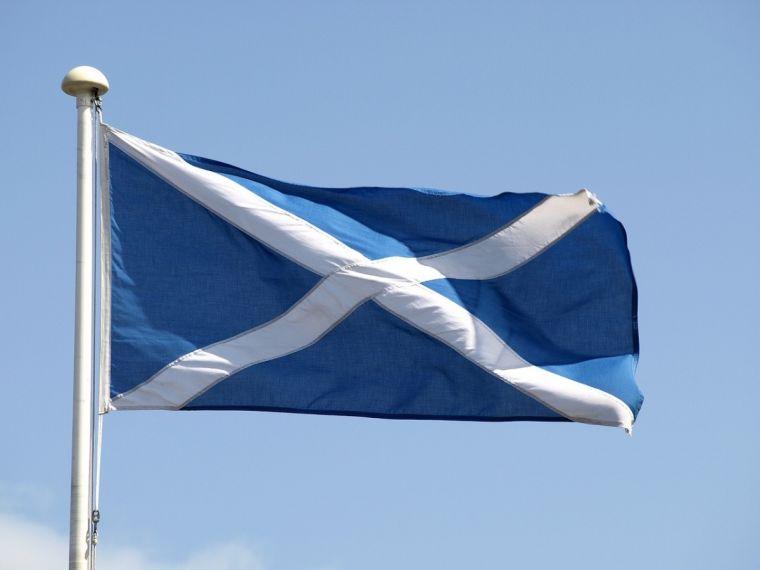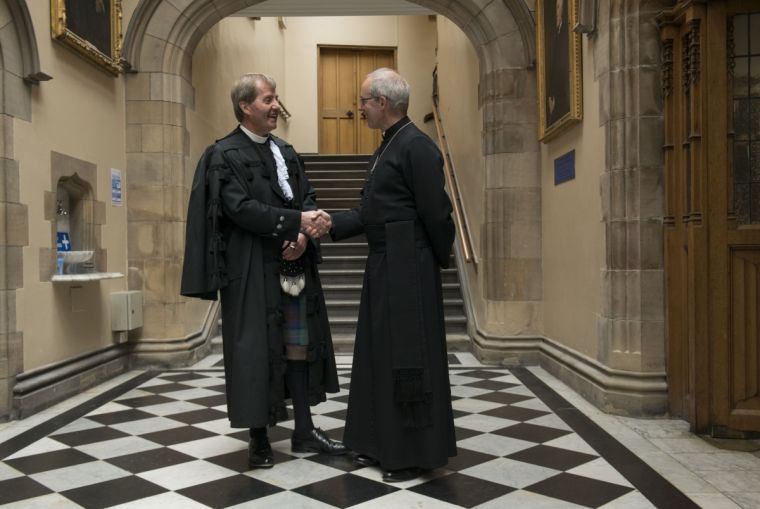Church of Scotland passes landmark unity pact with Church of England
The Church of Scotland has unanimously agreed to formally unite with the Church of England in an historic vote in Edinburgh.

The Columba Declaration has been discussed for the past 15 years and officially ties the two churches, which have been seperate since the 16th century Reformation. It was passed at the Scottish Church's general assembly on Wednesday. The CoE's general synod passed the measure in February.
The Archbishop of Canterbury became the first CoE leader to join a debate at the general assembly and urged support for the report. Justin Welby acknowledged significant differences in the doctrines of the two churches but said the Columba Declaration provided a framework to affirm common ground.
Earlier in the assembly's five day meeting the CoS agreed to accept ministers who are in same-sex marriages, something the CoE has not done.
"We won't always necessarily find ourselves walking in step with one another, something I've been particularly conscious of, as, like you, we have been considering the issues around same-sex marriages, and following your earlier debate on ministers in same-sex marriages," Welby said in his address.
"But what we believe we are providing in this report is a sound framework for us to affirm and build on the agreement we have, for the sake of our common witness to Christ."

Afterwards Welby said the vote was a "huge step" and was "absolutely delighted" with the result. He added that now passed, "there is a massive impulse to develop it into a deeper and deeper relationship, not only in the UK but internationally with Presbyterian churches."
He added: "The key things are common witness and common testimony in the face of the challenges the country is facing.
"People come to God's church to meet the grace shown through God's people. That is the judgement on us if we do not work together."
The move was released prematurely after it was leaked to the Telegraph in December.
Welby acknowledged the announcement had caused "deep hurt" to the CoE Anglican partner in Scotland, the Scottish Episcopal Church (SEC).
"That hurt is exclusively my responsibility and I want to put on the record to you and to them my apology," he said in his address.
A representative from the SEC thanked Welby for the apology and said the SEC had had "a very human reaction" to the announcement.
"It was a bit difficult when our sister begins to take an interest in our best friend especially when our best friend showed interest back," said Mark Strange, the Bishop of Moray, Ross and Caithness in the SEC.
"Thank you to everyone who has expressed their sorrow," he told the assembly. "You must now make your decision.
"Now it is time to get on with the real task ahead of sharing all we have in Christ."
The tie between the Anglican CoE and the Presbyterian CoS is landmark step. It allows clergy to minister in the other's churches and crucially formalises an agreement to move "towards fuller communion".
It comes as political tension between the two nations grows with Scottish National Party, who favour independence, retaining full control of the Scottish parliament in recent elections. The first minister Nicola Sturgeon has warned a second vote on independence would be triggered if Britain voted to leave the European Union on June 23.











